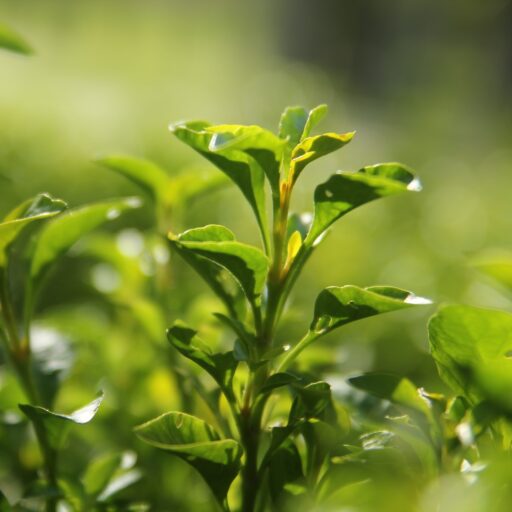Support our educational content for free when you purchase through links on our site. Learn more
Unlock the Secrets of Tea Soil: 12 Essential Tips for Cultivating Perfect Tea in 2024! 🌱
Have you ever sipped a cup of tea and wondered about the journey those leaves took to your mug? Well, it all starts with the soil! As tea growers at Growing Teas™, we know that tea soil is the unsung hero behind every delightful brew. In this comprehensive guide, we’ll dive into the intricacies of tea soil, from understanding its nutrient needs to the benefits of companion planting. Did you know that the right soil conditions can enhance the flavor profile of your tea? Just imagine sipping a cup of tea that’s not only delicious but also grown in the best possible conditions!
We’ll share our top 12 tips to help you cultivate the perfect tea soil, ensuring your plants thrive and produce the best leaves. Whether you’re a seasoned gardener or just starting your tea-growing journey, there’s something here for everyone. So, grab your gardening gloves, and let’s dig in! 🌿
Key Takeaways
- Soil pH Matters: Aim for a slightly acidic pH between 5.5 and 6.5 for optimal tea plant health.
- Nutrient-Rich Soil: Incorporate organic matter like compost and used tea grounds to boost soil fertility.
- Drainage is Key: Ensure your tea soil has good drainage to prevent root rot and keep your plants happy.
- Companion Planting: Pair tea plants with compatible species to enhance growth and repel pests.
- Avoid Common Mistakes: Stay clear of over-fertilizing and soil compaction to maintain healthy tea soil.
Ready to enhance your tea soil? 👉 Shop organic compost and soil pH test kits to get started on your tea-growing adventure! Shop Organic Compost on Amazon | Shop Soil pH Test Kits on Amazon
Table of Contents
- Quick Tips and Facts About Tea Soil
- The Roots of Tea Soil: Understanding Its Importance
- Essential Nutrients for Optimal Tea Soil Health
- Soil pH: The Secret Sauce for Happy Tea Plants
- How to Enrich Your Tea Soil with Organic Matter
- Applying Used Tea Grounds: A Gardener’s Best Friend
- Tea Soil Drainage: Keeping It Just Right
- Companion Planting with Tea: What Works Best?
- Common Mistakes to Avoid When Preparing Tea Soil
- Considerations for Growing Tea in Different Climates
- Conclusion: Your Path to Perfect Tea Soil
- Recommended Links for Tea Enthusiasts
- FAQ: Your Burning Questions About Tea Soil
- Reference Links for Further Reading
Quick Tips and Facts About Tea Soil 🌱
As tea enthusiasts and growers at Growing Teas, we know that the right soil is crucial for cultivating the perfect cup. Here are some quick tips and facts about tea soil to get you started:
- Soil pH: Tea plants prefer slightly acidic to neutral soil, with a pH between 5.5 and 6.5.
- Nutrient-rich: Tea soil should be rich in organic matter, with a mix of nitrogen, phosphorus, and potassium.
- Well-draining: Tea plants don’t like wet feet, so make sure your soil drains well to prevent root rot.
- Compost: Adding compost to your tea soil can help improve its structure and fertility.
For more tips on cultivating your own tea, check out our article on Growing Teas: 15 Essential Tips for Success in 2024! 🌱
The Roots of Tea Soil: Understanding Its Importance 🌍
Tea soil is more than just a medium for growing tea plants – it’s a complex ecosystem that supports the entire tea cultivation process. At Growing Teas, we believe that understanding the importance of tea soil is key to producing high-quality tea.
- Soil formation: Tea soil is formed through the decomposition of organic matter, such as leaves and branches.
- Soil structure: The structure of tea soil can affect the drainage, aeration, and nutrient availability for tea plants.
- Soil microbiology: Tea soil is home to a diverse range of microorganisms that play a crucial role in decomposing organic matter and fixing nitrogen.
To learn more about the importance of soil microbiology in tea cultivation, check out our article on Soil and Climate for Tea.
Essential Nutrients for Optimal Tea Soil Health 🌿
Tea plants require a range of essential nutrients to grow and thrive. Here are some of the key nutrients that your tea soil should contain:
| Nutrient | Function | Recommended Level |
|---|---|---|
| Nitrogen | Promotes leaf growth and development | 100-200 ppm |
| Phosphorus | Supports root growth and development | 50-100 ppm |
| Potassium | Helps with overall plant health and resistance to disease | 150-300 ppm |
| Calcium | Supports cell wall development and plant growth | 100-200 ppm |
| Magnesium | Involved in photosynthesis and plant growth | 50-100 ppm |
For more information on soil testing and nutrient management, check out our article on Soil Testing for Tea Cultivation.
Soil pH: The Secret Sauce for Happy Tea Plants 🍵
Soil pH is a critical factor in tea cultivation, as it affects the availability of nutrients for tea plants. Here are some tips for managing soil pH:
- Soil pH testing: Use a soil testing kit to determine your soil pH.
- pH adjustment: Add lime or sulfur to adjust your soil pH to the optimal range for tea plants (5.5-6.5).
- Buffering capacity: Add organic matter to your soil to improve its buffering capacity and reduce pH fluctuations.
For more information on soil pH management, check out our article on Soil pH Management for Tea Cultivation.
How to Enrich Your Tea Soil with Organic Matter 🌾
Adding organic matter to your tea soil can help improve its structure, fertility, and overall health. Here are some tips for enriching your tea soil with organic matter:
- Compost: Add compost to your tea soil to improve its nutrient availability and structure.
- Manure: Use animal manure or green manure to add organic matter to your tea soil.
- Cover crops: Plant cover crops to add organic matter to your tea soil and improve its soil health.
For more information on organic matter management, check out our article on Organic Matter Management for Tea Cultivation.
Applying Used Tea Grounds: A Gardener’s Best Friend ☕
Used tea grounds can be a valuable resource for tea gardeners, providing a natural source of nutrients and improving soil health. Here are some tips for applying used tea grounds:
- Direct application: Mix used tea grounds directly into your tea soil to improve its nutrient availability.
- Compost: Add used tea grounds to your compost pile to create a nutrient-rich compost for your tea plants.
- Tea bag application: Use tea bags as a natural fertilizer by burying them in your tea soil or adding them to your compost pile.
For more information on using used tea grounds, check out our article on Using Used Tea Grounds in Your Tea Garden.
Tea Soil Drainage: Keeping It Just Right 💧
Tea plants don’t like wet feet, so it’s essential to ensure that your tea soil drains well to prevent root rot. Here are some tips for improving tea soil drainage:
- Soil structure: Add organic matter to your tea soil to improve its structure and drainage.
- Drainage channels: Create drainage channels in your tea garden to prevent waterlogging.
- Mulching: Mulch your tea plants to improve soil temperature and prevent waterlogging.
For more information on tea soil drainage, check out our article on Tea Soil Drainage: Keeping It Just Right.
Companion Planting with Tea: What Works Best? 🌼
Companion planting can be a valuable technique for improving tea plant health and reducing pests and diseases. Here are some tips for companion planting with tea:
- Marigold: Plant marigold with tea to repel nematodes and improve soil health.
- Basil: Plant basil with tea to repel pests and improve flavor.
- Chamomile: Plant chamomile with tea to improve soil health and reduce stress.
For more information on companion planting with tea, check out our article on Companion Planting with Tea: What Works Best?.
Common Mistakes to Avoid When Preparing Tea Soil ❌
Preparing tea soil can be a complex process, and there are several common mistakes to avoid. Here are some tips for avoiding common mistakes:
- Soil pH: Avoid over-adjusting your soil pH, as this can cause nutrient imbalances.
- Nutrient overloading: Avoid over-fertilizing your tea plants, as this can cause nutrient imbalances and reduce plant health.
- Soil compaction: Avoid compacting your tea soil, as this can reduce drainage and aeration.
For more information on avoiding common mistakes, check out our article on Common Mistakes to Avoid When Preparing Tea Soil.
Considerations for Growing Tea in Different Climates 🌤️
Growing tea in different climates can be challenging, and there are several considerations to keep in mind. Here are some tips for growing tea in different climates:
- Temperature: Tea plants prefer temperatures between 10-30°C (50-86°F).
- Humidity: Tea plants prefer high humidity but can tolerate low humidity with proper irrigation.
- Sunlight: Tea plants prefer partial shade to full sun, depending on the variety.
For more information on growing tea in different climates, check out our article on Growing Tea in Different Climates.
Conclusion: Your Path to Perfect Tea Soil 🌟
In wrapping up our deep dive into tea soil, we hope you now have a clearer understanding of how to cultivate the perfect environment for your tea plants. Tea soil is not just about dirt; it’s a living ecosystem that requires attention, care, and a bit of love.
Key Takeaways:
- Soil pH is crucial; aim for a slightly acidic range of 5.5-6.5.
- Enrich your soil with organic matter like compost and used tea grounds to boost nutrient levels.
- Ensure proper drainage to keep your tea plants happy and thriving.
- Be mindful of companion planting to enhance the health of your tea garden.
By following these guidelines, you can create a thriving environment for your tea plants that leads to a bountiful harvest. So, grab your gardening gloves and get started on your journey to tea cultivation! 🌱
Recommended Links for Tea Enthusiasts 🔗
- Organic Compost: Shop Organic Compost on Amazon
- Soil pH Test Kit: Shop Soil pH Test Kits on Amazon
- Used Tea Grounds: Shop Used Tea Grounds on Amazon
- Books:
FAQ: Your Burning Questions About Tea Soil 🔥
What type of soil is best for tea?
The best soil for tea is well-draining, loamy soil that is rich in organic matter. It should have a slightly acidic pH, ideally between 5.5 and 6.5. This allows for optimal nutrient absorption and root development. Adding compost can significantly enhance soil quality and fertility.
Read more about “Growing Teas: 15 Essential Tips for Success in 2024! 🌱”
Which plants like tea grounds?
Tea grounds are particularly beneficial for acid-loving plants. Some of the best companions include:
- Roses
- Tomatoes
- Blueberries
- Ferns
These plants thrive in slightly acidic conditions and benefit from the nutrients found in used tea grounds.
Is it good to water plants with tea?
Yes, watering plants with diluted tea can provide additional nutrients. However, ensure that the tea is unsweetened and cooled to avoid harming your plants. Using twice-brewed tea as a substitute for regular watering can enrich the soil with beneficial compounds.
Read more about “Can Tea Plants Be Grown Indoors? 10 Essential Tips for Success in 2024! 🌱”
What is the best potting soil for tea tree?
The best potting soil for tea trees is a well-draining mix that includes components like peat moss, perlite, and compost. This combination ensures that the soil retains moisture without becoming waterlogged, creating an ideal environment for tea tree roots.
Read more about “Grow Tea Tree Indoors: Cultivate Your Own Indoor Tea Garden … 🌱”
How often should I amend my tea soil?
It’s recommended to amend your tea soil annually, especially in the spring, to replenish nutrients and maintain soil health. Regularly adding organic matter like compost or used tea grounds can keep your soil in optimal condition throughout the growing season.
Can I use commercial fertilizers for tea plants?
While commercial fertilizers can be used, it’s best to opt for organic options that are slow-release. Look for fertilizers specifically formulated for acid-loving plants, as they will provide the necessary nutrients without disrupting the soil pH.
Read more about “🌱 Grow Your Own Tea Garden! 10+ Tea Plant Seeds to Plant at Home …”
Reference Links for Further Reading 📚
- WW Nursery – Used Tea Grounds and Plant Growth
- TEALEAVES – Tea and Your Garden
- Gardening Know How – Using Tea Leaves in the Garden
- The Spruce – How to Use Tea Leaves in the Garden
Now that you’re armed with all this knowledge, it’s time to roll up your sleeves and get your hands dirty! Happy gardening! 🌿


